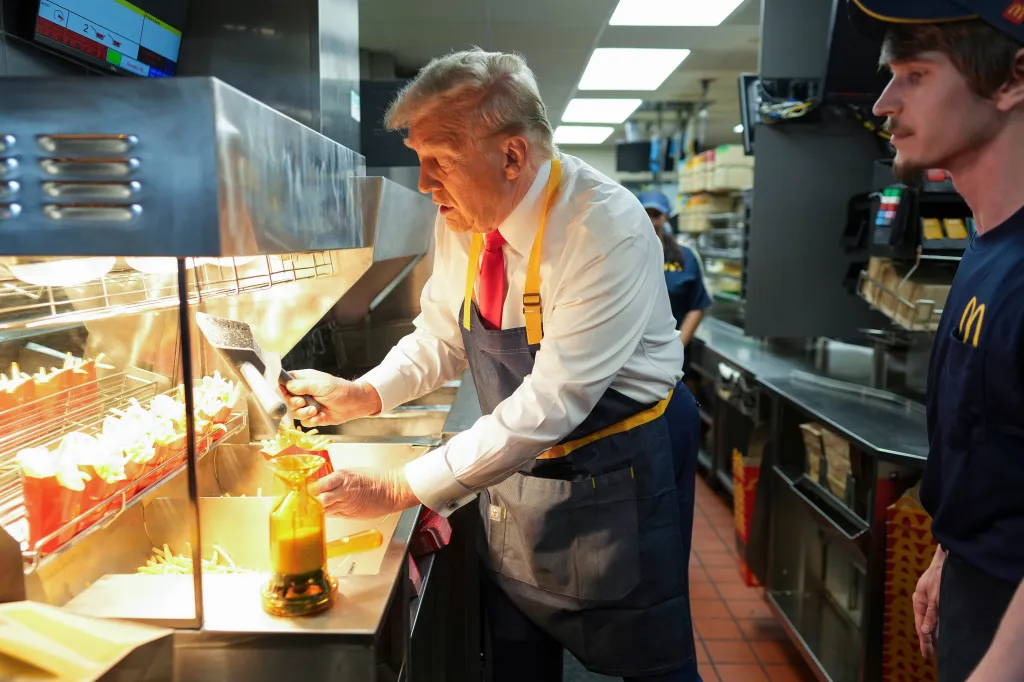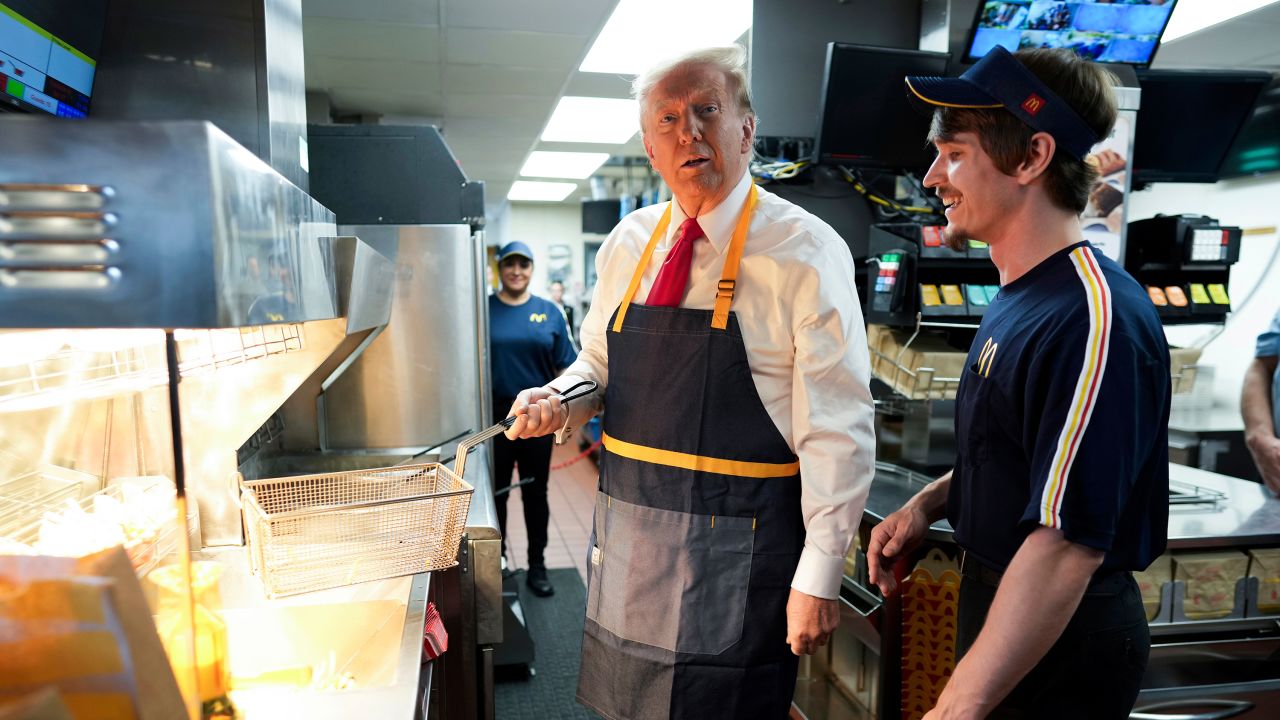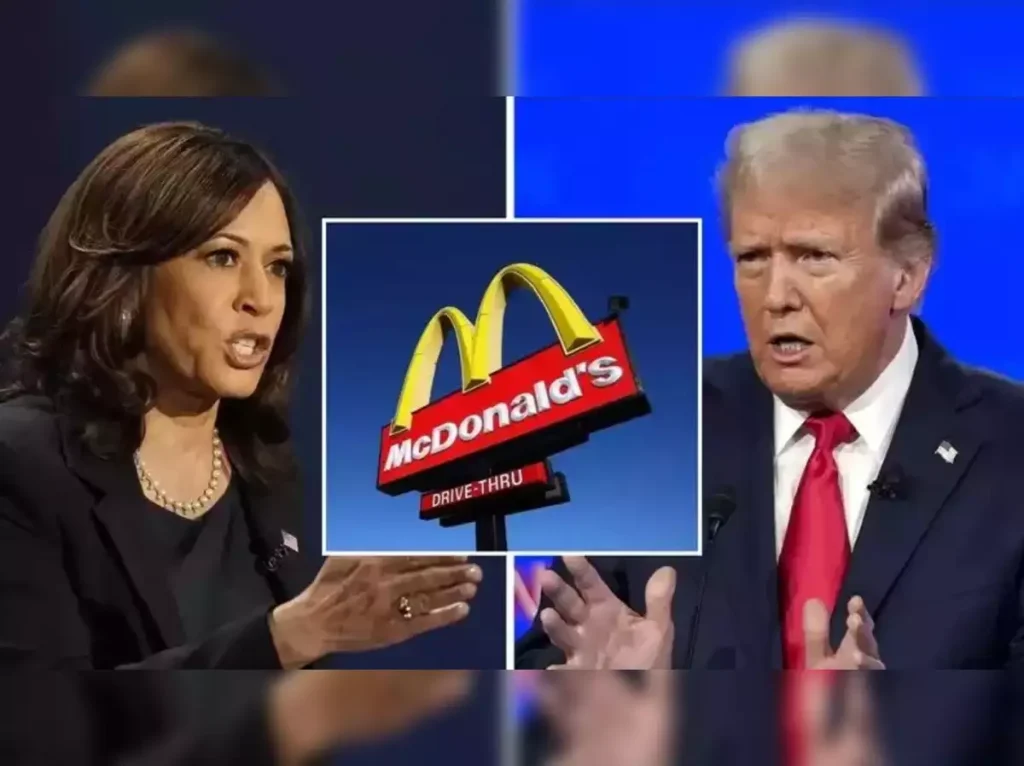Donald Trump’s deep connection to McDonald’s has become more than just a personal preference; it’s a political strategy. Trump’s frequent appearances at McDonald’s, including his latest stunt at a Feasterville, PA location, are part of a broader effort to align himself with working-class Americans. His visit, where he worked the fryer and handed food to customers, wasn’t just a campaign stop; it was a symbolic display of his supposed affinity with the average American, one who might frequent a fast-food chain like McDonald’s.

For Trump, McDonald’s represents consistency, reliability, and connection with everyday people. He has famously cited the chain’s quality control standards as a reason for his affection. While many might find it amusing that a billionaire chooses fast food over high-end restaurants, for Trump, McDonald’s serves as a bridge to his base — a symbol of populism in contrast to the elite world of Washington politics.
Kamala Harris’ McDonald’s Work History: Truth or Political Fodder?
A significant aspect of the ongoing Trump campaign has been casting doubt on Kamala Harris’ work history at McDonald’s. Harris has stated that she worked at a McDonald’s in Alameda, California, during the summer of 1983 while attending Howard University. This piece of her background serves as a testament to her middle-class upbringing and her connection to everyday Americans who’ve held similar entry-level jobs.

However, Trump has repeatedly questioned this, going as far as accusing Harris of fabricating the story. He has made it a talking point on the campaign trail, claiming her work history is a “huge lie.” While there seems to be no substantial evidence disproving her claim, Trump’s insistence plays into a broader narrative of discrediting his political opponents’ biographies, much like his involvement in the “birther” movement questioning Barack Obama’s citizenship.
Political Theater: McDonald’s as a Battleground
The fact that McDonald’s has become a focal point of this political rivalry speaks to the oddities of modern campaigning. Trump’s visit to McDonald’s just weeks before Election Day wasn’t coincidental. It was a calculated move to project a hands-on, relatable image in a way that contrasts sharply with his opponent. By dismissing Harris’ work history as fraudulent, Trump is attempting to undermine her credibility, casting himself as the authentic voice of the people who knows McDonald’s better than she does — both literally and figuratively.

Interestingly, this debate around McDonald’s doesn’t change the underlying issues voters care about, but it serves to highlight the absurdity and theatrics of modern political campaigns. The former president working at McDonald’s and Harris’ fry-cook past have become battlegrounds for defining who understands and represents the American working class better.
A Battle Over Authenticity
Both Trump and Harris are leveraging McDonald’s to highlight their connection to the everyday American. For Trump, his long-standing love of the brand is undeniable. Whether it’s buying meals for first responders or serving Big Macs at the White House, Trump’s ties to the fast-food giant are well-documented. For Harris, McDonald’s serves as a humble nod to her past, reinforcing her narrative as someone who knows what it’s like to work in an entry-level position.
The question remains: does it matter if Harris worked at McDonald’s in 1983? For some voters, authenticity is paramount. Trump’s ability to dominate the narrative around this seemingly trivial issue is part of his broader strategy to paint Harris as out of touch with the working class. But for others, the focus on fast-food jobs feels like a distraction from the larger issues at hand, like the economy, healthcare, and leadership.
Final Thoughts: McDonald’s as a Campaign Tool
Ultimately, this debate around McDonald’s is a reflection of how small personal details can become major talking points in a political campaign. Trump’s public love for the chain has evolved into a symbol of his populism, while his attacks on Harris’ McDonald’s job attempt to delegitimize her working-class credentials.

At the end of the day, both candidates are trying to connect with voters, using McDonald’s as an unlikely platform to do so. While it’s entertaining to some, it also points to how political campaigns can sometimes focus on trivialities rather than the pressing issues voters face. For Trump, McDonald’s is more than a meal; it’s a symbol of his connection to a specific voting bloc. For Harris, her past job there serves as a way to demonstrate her real-world experience. In the end, the effectiveness of these narratives will be determined by the voters, who will decide which story resonates with them more.




